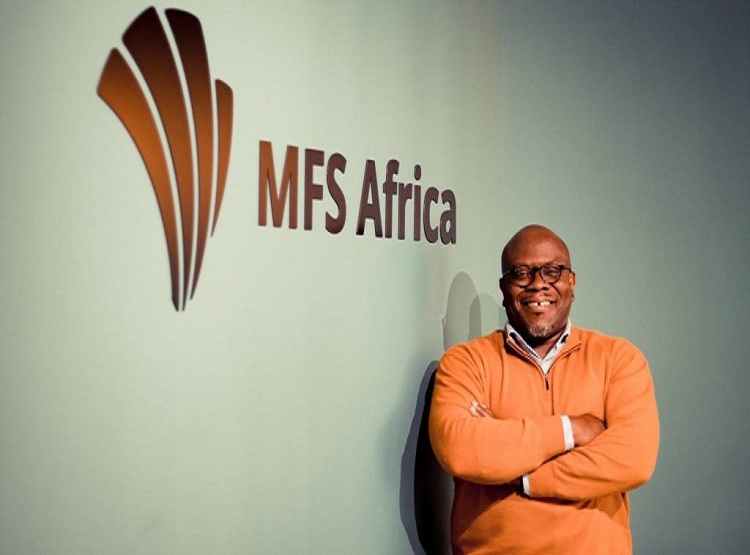Telecom
MFS Africa Acquires Baxi, Expands into Nigeria

MFS Africa, has announced a signed agreement to acquire Nigeria’s super-agent networks, Baxi.

“Nigeria is home to one of the most dynamic markets on the continent; it is Africa’s largest economy and home to the largest number of SMEs. It is also the largest remittance market in Africa and home to one-third of intra-Africa remittance flows.”
MFS Africa’s presence in Nigeria to date has been limited given the country’s small number of mobile wallets. With the acquisition, MFS Africa will expand its pan-African network into Nigeria, connecting Nigerian businesses to the continent and the rest of the world.
“This deal is a pivotal step in our journey. By combining Baxi’s network of SMEs operating as agents with our pan-African network, we aim to take Nigeria’s SMEs to the rest of Africa and the world. Our expansion into Nigeria brings us one step closer in our mission of making borders matter less,” said Dare Okoudjou, MFS Africa founder and CEO.
Founded in 2014 by Degbola Abudu and Folu Majekodunmi, Baxi is one of Nigeria’s largest independent SME-focused electronic payment networks.
Baxi provides a cash-in/cash-out offering as well as value-added services including account opening, money transfer, bill payment, among others, to the last mile. Through its network of more than 90,000 agents, Baxi has already processed over $1 billion in transactions this year.
Following the acquisition’s close, MFS Africa will build Baxi into a key node on its digital payment network, allowing customers to make regional and global payments to and from Nigeria.
MFS Africa will also expand Baxi’s proposition for offline SMEs to select markets within MFS Africa’s footprint of 320 million mobile wallets across more than 35 African countries.
Previous restrictions to mobile network operators’ participation in mobile money services have restrained the sector’s growth in Nigeria.
To serve the more than 55% of Nigerian consumers currently excluded from formal financial services, Nigerian fintech that has built strong agent networks are the crucial interface to reach Nigeria’s 31,000,000 financially underserved and 67,000,000 financially unserved populations.
Supporting and nurturing SMEs is crucial to Nigeria’s economy, as they contribute 50% of Gross Domestic Product and provide 76% of jobs. With its presence in 36 Nigerian states, Baxi fills a critical gap by providing unbanked Nigerians and informal SMEs access to financial services.
The focus areas of both companies are complementary. Baxi simplifies and integrates online and offline payments for SMEs and merchants in Nigeria through its omni-channel distribution network. MFS Africa simplifies cross-border payments, integrating payments via one hub.
“We’re thrilled to partner with the MFS Africa team to expand our service offering for individuals and SMEs. We believe that we’ve barely scratched the market’s potential. Only 3% of Nigerian SMEs have access to credit products. By teaming up with MFS Africa, and with the strong support of our local commercial banking partners, we can offer more value-added products and services, such as cross-border payments, to support Nigerian SMEs in their growth,” said Degbola Abudu, Baxi CEO.
Following the acquisition of Beyonic in 2020, MFS Africa continues to accelerate and lift its growth with strategic investment and acquisition, which are actively supported by its shareholders. LUN Partners Financial and FT Partners served as financial and strategic advisors to MFS Africa in this transaction.
PWC Nigeria and Nihilent advised MFS Africa on Commercial, Product and Technological due diligence. Da Hui and TNP were legal advisors to MFS Africa. Baxi was advised by financial advisor Verdant Capital and DAI Magister. Their legal counsels were Udo Udoma & Bello-Osagie (UUBO) in Nigeria and Akin Gump Strauss Hauer & Feld LLP in London.
Telecom
MTN Champs Lagos Continental Relays: A Celebration of Sportsmanship and Fun

MTN Champs Season 3 Lagos Continental Relays concluded on April 12, 2025, with a vibrant closing ceremony at the Yabatech Sports Complex.

This event marked a historic moment in Nigerian athletics, featuring the debut of the Olympics-approved mixed relays and showcasing exceptional talent across various track and field events.
The final day was a blend of intense competition and entertainment, drawing families, friends, and MTN Nigeria staff to the stands. Guests enjoyed music, games, and the much-anticipated MTN Staff Relays, where teams from different departments competed for medals and bragging rights. The Innovators emerged victorious, clinching gold in both male and female categories.
MTN executives also joined the fun, participating in 50m sprints and emphasizing the importance of physical activity. Chief Human Resources Officer, Esther Akinnukawe, highlighted the company’s Go M.A.D (Make A Difference) campaign, encouraging individuals to stay active and impactful in their fields.
The Lagos Continental Relays attracted over 2,500 entries from 155 schools, with participants competing in four age categories: Cadet (U-14), Youth (U-17), Junior (U-20), and Senior. The event not only celebrated athletic excellence but also reinforced MTN’s commitment to nurturing future Olympians and building a legacy of sports development in Nigeria.
Season 3 of MTN Champs continues with the grand finale scheduled to take place in Uyo at the Godswill Akpabio Stadium from April 30 to May 3.
Telecom
MTN, Meta Partner to Enhance Voice and Video Calling Quality

MTN Group, Africa’s leading telecommunications provider, has joined forces with Meta to improve the quality and reliability of voice and video calls on real-time calling applications such as WhatsApp across 12 MTN markets.

The collaboration, which began at the Mobile World Congress (MWC) 2024, focuses on optimizing application-aware networks and network-aware applications to deliver a seamless and high-quality user experience. By leveraging data analytics and conducting comprehensive testing, MTN and Meta have successfully developed solutions that enhance the interaction between mobile networks and real-time calling applications.
Nigeria, MTN’s largest market, was the first to implement these enhancements. Early results indicate a remarkable 50% improvement in key performance indicators (KPIs), significantly enhancing the user experience for MTN Nigeria mobile users.
“This implementation further demonstrates our commitment to enhancing our customers’ digital experience.
“We’re pleased with the remarkable improvement in our real-time communication services, reflecting our commitment to innovative customer solutions,” said Yahaya Ibrahim, Chief Technology Officer (CTO) at MTN Nigeria.
Diego Marí, Head of Network Ecosystems Engineering at Meta, added, “The collaboration allows us to deploy advanced solutions for an unparalleled real-time experience in Nigeria and showcases our dedication to elevating service quality and improving user experience, while striving for continued efficiency in traffic delivery.”
The partnership underscores MTN and Meta’s shared vision of delivering cutting-edge solutions to enhance digital communication across Africa.
Telecom
Rack Centre Commissions Revolutionary LGS2 12MW Data Centre in Lagos

Rack Centre, West Africa’s premier Tier III carrier and cloud-neutral data centre, has unveiled its state-of-the-art 12MW IT Load Data Centre, the LGS2, in Lagos, Nigeria.

This innovative facility is set to redefine the digital landscape of Nigeria, offering unparalleled infrastructure, scalability, and reliability.
Speaking at the official commissioning on April 10, 2025, Rack Centre’s Chairman, Maher Jarmakani, emphasized the company’s dedication to innovation and sustainability.
He highlighted the LGS2 facility’s role in providing uninterrupted, energy-efficient solutions for enterprises, cloud providers, and financial institutions, reinforcing Rack Centre’s pivotal role in Nigeria’s digital transformation.
“This facility exemplifies our commitment to powering the nation’s digital future,” Jarmakani stated.
Governor of Lagos State, Babajide Sanwo-Olu, represented by his Deputy Chief of Staff, Sam Egube, praised the milestone during his keynote address.
He described the LGS2 facility as a cornerstone in Lagos’s journey toward becoming a globally competitive digital hub.
Sanwo-Olu also commended Rack Centre for prioritizing sustainability and energy efficiency in the centre’s design.
Rack Centre’s CEO, Lars Johannisson, expressed gratitude to the Lagos State Government for fostering an enabling environment to support the company’s vision.
Johannisson described the facility as a symbol of Nigeria’s commitment to cutting-edge technology, sustainable digitisation, and artificial intelligence.
He noted that with the LGS2 operational, Rack Centre’s data centre capacity would increase eightfold, solidifying its leadership in sub-Saharan Africa’s digital infrastructure space.
As a key player in Nigeria’s digital ecosystem, Rack Centre continues to connect people, businesses, and ideas, driving technological progress and cementing its legacy as a trailblazer in Africa’s digital economy.

 E-Business2 days ago
E-Business2 days agoNITDA Warns Against Fake Google Play Store

 General News2 days ago
General News2 days agoLagos Commences Integration of NIN with State Single Social Register

 News2 days ago
News2 days agoNOA Uncovers Fraud by Banks, Universities in Students Loan Scheme

 E-Financial2 days ago
E-Financial2 days agoUBA Redefines Banking with Next-Gen PoS Terminals and Revamped MONI App

 E-Financial2 days ago
E-Financial2 days agoSEC Bans Unregistered Digital Asset Exchanges, Online Forex Platforms

 E-Financial2 days ago
E-Financial2 days agoNIBSS Heads to Court to Recover N4Bn Lost due to System Glitch

 E-Financial2 days ago
E-Financial2 days agoAfrica Loses $88.6Bn Yearly to Corruption- ECOWAS

 General News2 days ago
General News2 days agoNigeria Records $6.83Bn Balance of Payments Surplus in 2024 Amid Economic Reforms



























